九月开学季,各大高校都斯坦福大学2024级开学典礼在弗罗斯特露天剧场举行,欢迎来自全美和世界各地的1704名新生和60名转学生入读斯坦福大学。
新任校长乔纳森·莱文(Jonathan Levin)发表了开学演说,并强调,“大学生活的核心在于提出问题”,激励学生保持好奇、不断探索并心存感恩。
乔纳森·莱文(Jonathan Levin)
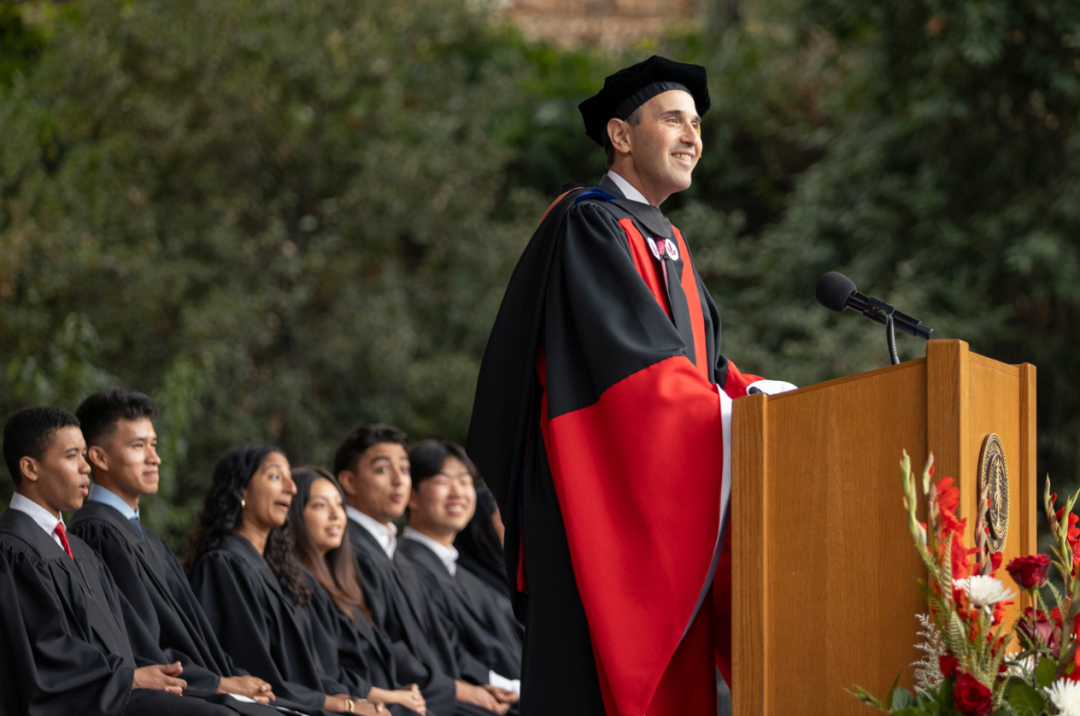
乔纳森·莱文(Jonathan Levin),1972年11月17日出生于美国康涅狄格州纽黑文,经济学家,美国艺术与科学院院士,2024年4月被任命为斯坦福大学第13任校长。
▷乔恩·莱文是耶鲁前校长理查德·莱文的儿子,老莱文在耶鲁做了20年校长,是该校最为成功的领导人之一。他们都是经济学家,都拥有斯坦福本科和英国牛津硕士学位,不过父亲在耶鲁拿到博士,儿子的博士学位在MIT拿到。
▷2011年,他获得了专门表彰美国40岁以下最杰出经济学家的约翰·贝茨·克拉克奖章(John Bates Clark Medal),
▷出任校长前,莱文是菲利普·奈特讲席教授和斯坦福商学院院长。
▷ 还担任拜登总统科学技术顾问委员会的成员。
演 讲 正 文 如 下 :
各位新生、转学生和你们的家人们:
欢迎来到斯坦福大学!我们一起期盼着你们的到来,非常高兴看到大家终于来到校园。
和你们一样,我本人也在开启新的职业篇章。尽管我在斯坦福(经济系),还担任过斯坦福商学院院长,但刚刚才就任斯坦福校长。
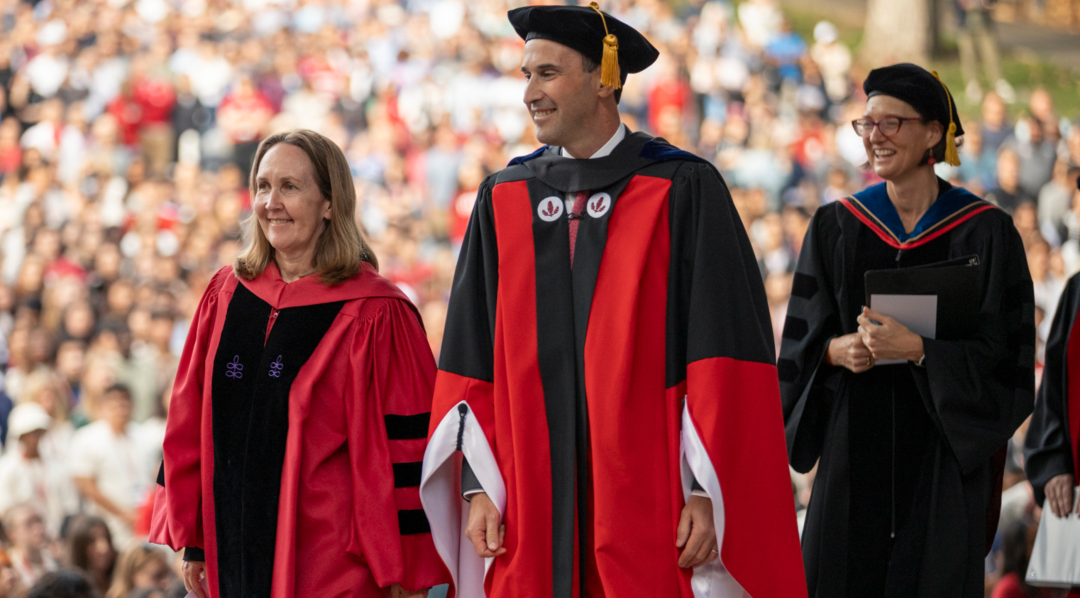
和你们一样,我也踏上了一条学习和探索之旅,历经多年,我已经爱上斯坦福及其代表的一切。对于面临的机遇和我们的未来——尤其是你们所代表的未来,我深感振奋。
我非常高兴有机会给你们上第一堂课。
看到你们的光临,我彷佛也回到了1990年9月在斯坦福就读本科的第一天。我在东海岸长大成人,因此对横跨北美大陆来到加州充满期待和彷徨。
今天,我很想告诉你们的是,在34年前我就坐在你们之中的一个座位上,聆听校长在开学典礼所说的塑造我的斯坦福本科生涯、影响我的人生轨迹的那些话。数十年过后,这句话依然铭刻在心。
但事实上,我完全记不得开学典礼的任何细节。或许我确实出席了这个活动,但我很肯定没有注意谁是校长。因为我在斯坦福的开学第一个星期,我日思夜想的是:这些人是谁?他们会有人成为我的朋友吗?
我觉得你们之中很多人或许同样如此,这完全合乎情理。
因此,既然我们可以肯定34年后,你们同样会把这次演讲抛到脑后,你们甚至可能完全忘记开学典礼,但我还是想和你们分享一些事情。
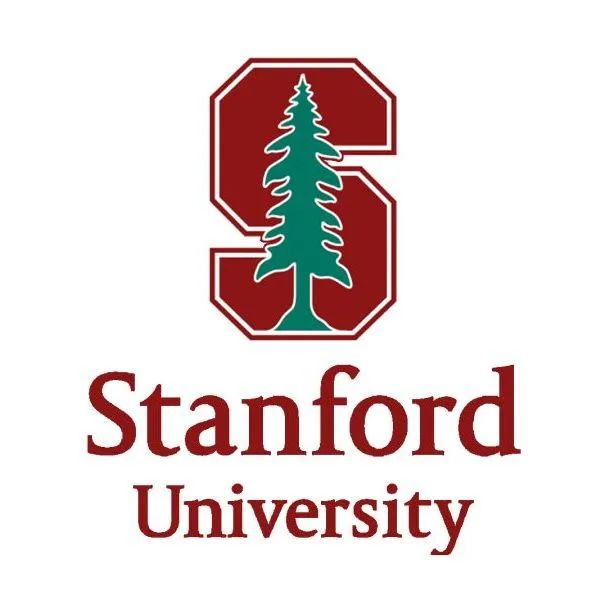
大学在于提出问题
让我先从一个故事开始,这实际上也是我对你们在斯坦福本科生涯的期望。
多年前,我参加过一个面向新生的人文学科精彩讲座。主讲嘉宾是哲学家乔纳森-李尔,主题是关于苏格拉底。正如李尔所解释的,苏格拉底是通过与普通人交谈进行哲学研究。
他采用的方法是提出问题,进行苏格拉底式对话。形形色色的人都会找到苏格拉底。他们来的时候往往秉持某种信念,例如,某种义正词严或虔诚无比的理论。苏格拉底刨根问底地提出问题,从而动摇他们的信念。随着苏格拉底抛出更多问题,那些人愈发犹疑不定,最终心乱如麻地仓皇离去。
但苏格拉底坦然相对,与周围的人不同,他乐于接受未知,他乐于提问,但不执着于答案。
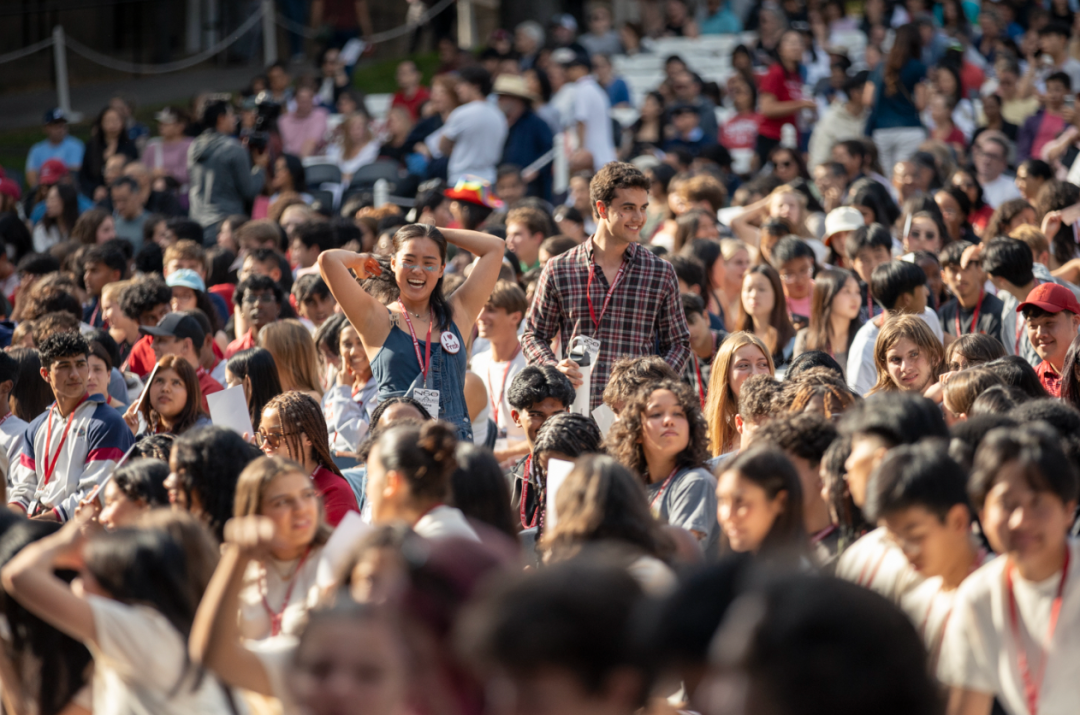
那次讲座让我思考今天你们为什么接受高等教育。
相信有人告诉过你们,上大学是为了获取知识,当然,这话没错。在斯坦福大学,你们肯定会学到很多理论、事实以及技能。
然而,大学的核心在于提出问题,在于接受你们未知的事物——总会发现新的方法来解决一项课题、重构思维模式、或进行更深入的研究。
现在,乔纳森·李尔的演讲继续涉及另一个异常相关的论点。李尔观察到,苏格拉底感兴趣的问题在于:如何让诸如在座各位的学生们作为个体并在社会中茁壮成长;以及你们期盼什么样的生活。
讲座接近尾声时,在场听众提出一些问题。一位学生起身道,“李尔教授......我怎么才能不虚度此生呢?”这个场景在我脑海中一直挥之不去:首先,因为这是一个很难回答的问题;其次,因为在那个瞬间,我彷佛穿越回古希腊,来到苏格拉底(而不是李尔教授)的身边。
当然,这个问题也成为那次讲座的聚焦点。尽管在接下去的数周内,你们会忙于结交好友,厘清自己的课程和活动、记住各个宿舍的位置,不过我们希望你们在校期间不要忘记这些重大问题:
我们该如何为美好生活做好充分准备?
成为社会和民主制度中的公民意味着什么?
在每一种文化中,这些问题都会时刻触及到你们。事实上,斯坦福的本科课程也会要求你们应对这些问题。
应对这些问题,也是我们一再强调斯坦福除了提供技能和学位、而且还有真正的博雅教育的部分意义所在。
因此,我希望你们在斯坦福学到新的专业和技能,无论是国际关系、创意写作、还是分子生物学。你们会遇到未来的终生挚友;你们会爱上这个美丽的校园;你们会找到一条职业路径。
最为重要的是,你们会带着诸多问题离开学校,并且更加心安理得于无从知晓所有答案。
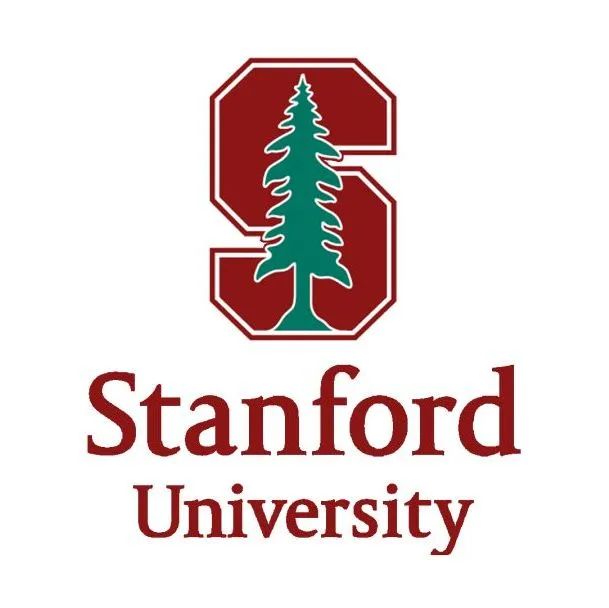
我的几个建议
现在,在说出对你的期望后,我想分享三个建议。
1、保持好奇,拒绝评判
首先,花时间观察你们身边的1,700位同学;还有为数更多的研究生和教师团体。在斯坦福大学,你们周围有着无数来自五湖四海的、背景各异、兴趣和抱负广泛的人们。
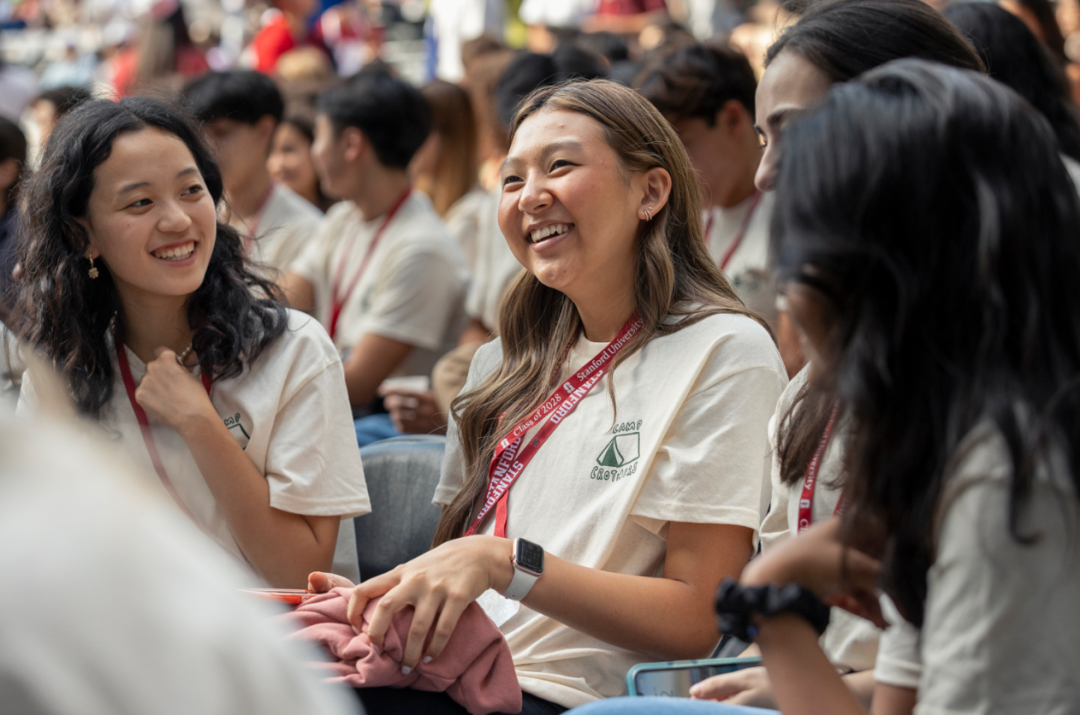
我们的一项共同挑战是营造一个有助于所有这些拥有无数热情和看法的人茁壮成长的氛围。如果关注过去年的校园,你们会明白这并非理所当然。
我喜欢电视教练泰德·拉索,他的格言是“要好奇,不要评判”。对于彼此之间各种不同的想法和观点,斯坦福是一个充满好奇,而非评判的地方。这意味着保持开放的心态,参与对话,对周围的人们保持好奇心。
如果你们还能记得一点点这次演讲的内容,我希望你们记住的是以上这点。因为这确实是斯坦福强有力社区的核心所在。
2、有目的地进行探索
其次,你们能够在斯坦福选择几乎所有的知识领域,而且这个校园里总有人处于该领域的前沿。
你们可以选修海带森林生态学、希腊神话、AI社会和经济影响、以及数百门其他专业的课程。
你们还可以加入超过650个学生俱乐部(这还没算上运动队)。当我回忆起自己的新生宿舍时,身边有的同学加入歌唱团、竞选学生会、制造太阳能汽车、以及争夺全美高校体育协会(NCAA)锦标。同宿舍的一帮学生打破蛙跳世界纪录,在春季学期,他们花了整整两周时间内绕着威尔伯运动场(Wilbur Field)又蹦又跳。
我的一位至交好友没有参加任何有组织的课外活动。不过他喊得出我们这个年级所有1,700位同学的名字。这也很好——甚至可能比打破蛙跳世界纪录更棒。
因此,你们在斯坦福期间即将面临的一项艰巨决定就是要搞清楚自己该做什么、以及把自己的时间花在何处。
在斯坦福多年来,我发现最成功的学生懂得平衡之道。他们有意识地设定目标和制定计划(季度或年度)——但他们也对意外之喜保持开放态度。他们愿意尝试新鲜事物或结识新朋友。
我希望你在校期间努力找到这种平衡。
3、感恩
我的第三个也是最后一个建议更为个人化。
斯坦福在读体验肯定不会完美无缺。你们每一位都会遭遇失望、障碍和挫折。你们中有人是克服了重大挑战得以来到这里,未来数年,我们所有人都会面临艰难险阻。
尽管如此,我们也非常幸运。作为一名斯坦福学生,很多大门已经向你们敞开。你们能够在本科阶段就进行科学研究,得到诺贝尔奖得主教授的言传身教,到佛罗伦萨、开普敦或香港交换学习。在这里,相比世界上很多其他地方,你们享有非同寻常的自由。
大多数的人没有机会坐在这里。因此,我们都应该,通过谦卑和服务,努力让自己无愧于这个校园。
这里有一些人应该得到更多。他们竭尽全力帮助你们来到这里,他们为你们感到无比自豪。本着感恩的精神,我希望大家花点时间分享对家人和亲人的感激之情。
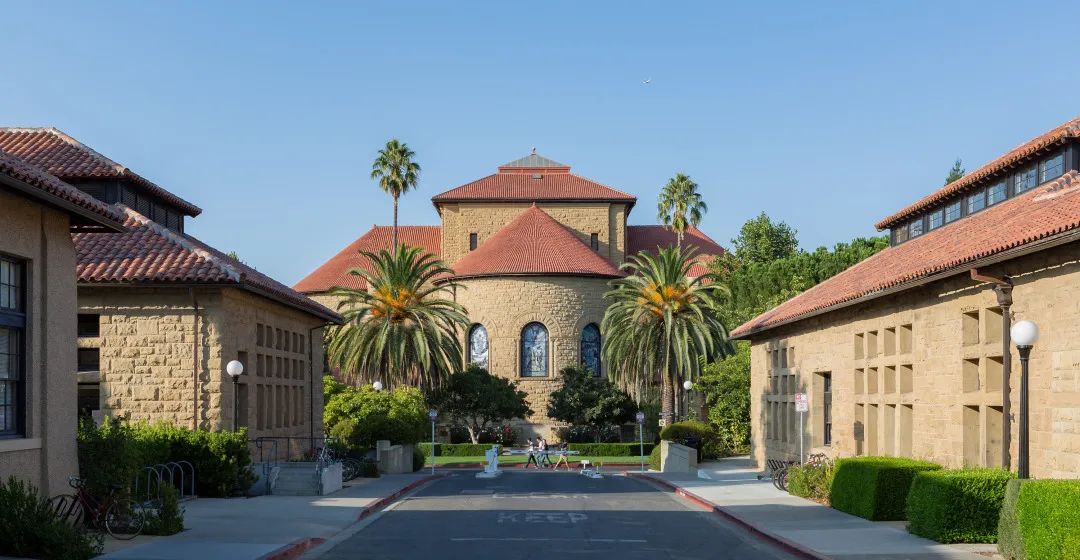
在结束之前,我想再说一遍:我们很高兴你们来到斯坦福。
你们来到一个非凡的地方,身边都是出类拔萃的人、有着无数的可能性。用你们的时间来保持好奇、进行探索,并对面临的机遇心存感恩。
我迫切希望看到你们在这里的成长、你们如何激发自己的好奇心。我知道这将引领你们走向非凡的未来。
2028届的同学们,欢迎来到斯坦福大学!
Convocation remarks by Stanford President Jonathan Levin
First-years, transfer students, and families: Welcome to Stanford!
We’ve been eagerly anticipating your arrival and it was a joy to see you moving in this morning. We’re so glad you’re here.
Like you, I am beginning a new chapter. Although I’ve spent many years on the Stanford faculty – teaching in the economics department, and then as the dean of Stanford’s business school, I am just starting as Stanford’s president.
Like you, I am setting off on a journey of learning and discovery. Over the years, I have come to love Stanford and all that it represents. I’m energized by the opportunities before us, and by our future – the future that you represent.
I couldn’t be more excited to welcome you as my first class.
Watching you arrive brought me back to my own first days as an undergraduate at Stanford, in September of 1990. I grew up on the East Coast, so moving across the country to California was filled with both anticipation and uncertainty.
Now, I’d like to say that 34 years ago, I sat in one of your seats at Convocation and Stanford’s president said something that shaped my time at Stanford, that affected the course of my life, something that I remember decades later.
But actually, I can’t remember anything about Convocation. And assuming I attended, I’m pretty sure I wasn’t paying attention to the president. Because my first week at Stanford, what I was thinking was: Who are all these people? Will any of them become my friends?
I suspect the same may be true for some of you, which is entirely appropriate.
So, now that we’ve established that 34 years from now, you won’t remember this talk, and you may not even remember if you were here, I have a few things I’d like to share.
College is about questions
I’ll start with a story, which is really about my hopes for you at Stanford.
Some years ago, I attended a wonderful lecture for a freshman humanities class. The speaker was the philosopher Jonathan Lear, and the topic was Socrates.
Socrates, as Lear explained, did philosophy by talking to everyday people. The way he did that was to ask questions, to engage in Socratic dialogue.
All sorts of people came to Socrates. Typically, they would arrive with a conviction – for instance, a theory of justice or of piety. Socrates would ask probing questions, and their conviction would weaken. Socrates would ask more questions. They would become even less certain. Eventually, reduced to a state of confusion, they would rush off.
But Socrates stood still. Because unlike the people around him, he was comfortable not knowing. He was comfortable asking questions and not having answers.
That lecture came back to me, thinking about why you are here today.
People will tell you that college is about acquiring knowledge. Of course, there’s a good deal of truth to that. You will learn many theories and facts and skills here at Stanford.
However, at its core, college is about asking questions. It is about learning to appreciate how much you don’t know – that there are always new ways to approach a topic, to reframe your thinking, or to explore more deeply.
Now, Jonathan Lear’s lecture went on to talk about another very relevant point. Lear observed that Socrates was interested in the question of how students, like you, can develop in ways that will allow you to flourish as individuals and in society, and what sort of lives you might aspire to lead.
At the end of the lecture, there were questions from the audience. A student stood up and said, “Professor Lear … how doIlive a good life?” I remember the moment vividly: first, because it was a hard question, and second, because for an instant, there was an extraordinary transference, as if we were in the room not with Professor Lear but with Socrates.
Of course, the question was also the point of the lecture. Although you will be plenty busy in the coming weeks making friends, figuring out your classes and activities, and trying to remember where FloMo and Wilbur and Roble are located, part of what we eventually want you to do at Stanford is to engage with big questions: How do I prepare to live a good life? What does it mean to be a citizen in society or in a democracy?
These questions are asked in every culture, and at every time. Indeed, you will be asked to tackle them as part of the COLLEGE curriculum this year.
Wrestling with them is part of what we mean when we say that Stanford will offer you not just skills and a degree but a true liberal education.
So my hope for you at Stanford is that you will learn new subjects and skills, whether it’s international relations or creative writing or molecular biology. That you will meet people who become lifelong friends. That you fall in love with this beautiful campus. That you find a career path. And most of all, that you leave with many questions, and a greater comfort in not knowing all the answers.
A few pieces of advice
Now, I’ve shared my aspirations for you, and I’d like to share three pieces of advice.
Be curious, not judgmental
First, take a moment to look at the 1,700 students gathered around you. Multiply that by four. Add the coterms, the graduate students, the faculty. At Stanford, you will be surrounded by people from every part of the world, from all different backgrounds, with a vast array of interests and aspirations.
One of our collective challenges is to create an environment where each of us, with so many different passions and views, can thrive. If you’ve followed college campuses for the last year, you’ll know it’s not a given.
I’m fond of the television coach Ted Lasso, whose maxim was: “Be curious, not judgmental.” Stanford is a place to be curious, not judgmental: about each other, about ideas, about different perspectives. That means keeping an open mind, getting into conversations, being inquisitive about the people around you.
I hope if you remember one thing from this talk, you’ll remember that, because it is really at the heart of having a strong community at Stanford.
Explore, with intention
Second, here at Stanford, you can pick virtually any field of knowledge, and there will be someone on this campus who is at its frontier.
You can take classes on the ecology of kelp forests, Greek mythology, the social and economic impact of AI, and hundreds of other topics.
You can join more than 650 student clubs, and that’s not even counting the sports teams. When I think back to my own freshman dorm, there were students who joined singing groups, ran for student government, built solar cars, and competed for NCAA championships. A group of my dorm mates broke the world record for leap-frogging, by spending two weeks lapping Wilbur Field during spring quarter.
One of my closest friends joined precisely zero organized activities. Instead, he memorized the names of all 1,700 people in our class. That also worked out just fine – maybe even better than for the leap-froggers.
So one of the hardest decisions you will face at Stanford is figuring out what to do and how to spend your time.
Over many years here, what I have seen is that the students who are most successful strike a balance. They are intentional in setting goals and making plans – for the quarter or the year – but they also leave themselves open to serendipity. They put themselves out there to try new things or take a risk in meeting new people.
I hope you will try to find that balance during your time here.
Gratitude
My third and final piece of advice is more personal.
Stanford will not be a perfect experience. Each of you will have disappointments and frustrations and setbacks. Some of you have overcome significant challenges to sit here today, and in the next few years, all of us will encounter difficulties.
Yet we are also in a fortunate position. As a Stanford student, many doors are open. You can pursue undergraduate research, take courses taught by Nobel laureates, study in Florence or Cape Town or Hong Kong. You will have freedoms here that compared to many parts of the world are extraordinary.
Most people don’t get the opportunity to be here. So we should all try, through humility and service, to be deserving of these circumstances.
Now in that spirit of gratitude, there is a group of people here who deserve a great deal of it. They have worked hard to help you get to this point, and they are immensely proud of you. So I’d like us to take a moment to share our appreciation for your families and loved ones.
Before I close, I want to say, again: We are so glad you’re here.
You have arrived at a remarkable place, full of extraordinary people and infused with a sense of possibility.
Use your time to be curious, to explore, and to be grateful for the opportunities that are in front of you.
I can’t wait to see what you do with your time here, and the ways in which you engage your curiosity. I know it will lead you to remarkable places.
Class of 2028: Welcome to Stanford!
看完了校长的开学演讲,是不是也想加入其中,成为斯坦福大学的一员?光想还不够,努力提升自己的实力才是硬道理!
同学们可以考虑参加一些高含金量的竞赛,为自己的申请添砖加瓦!
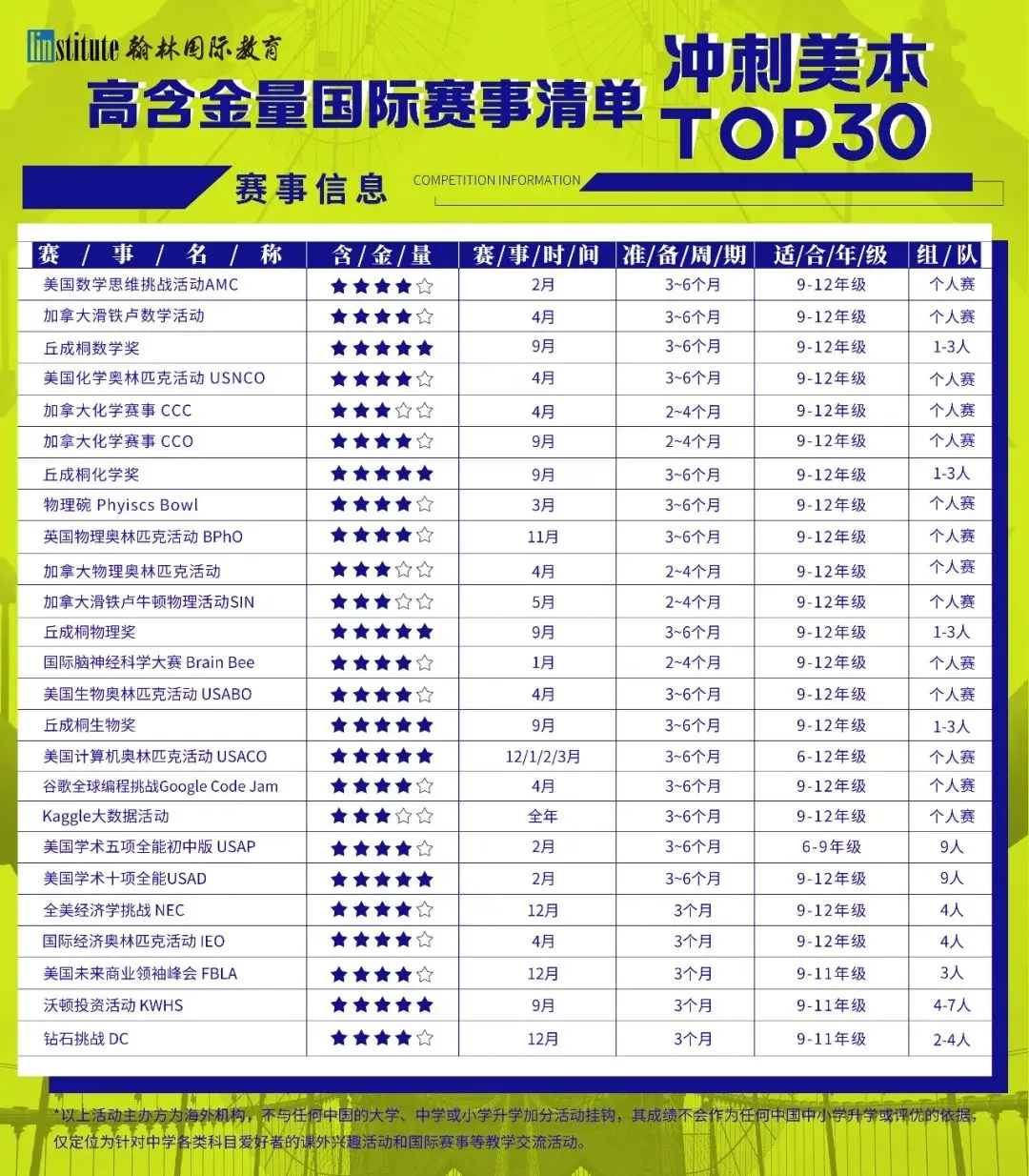
了解更多申请详情
扫码1v1咨询顾问老师

我要咨询!
更多信息可咨询顾问
本期福利
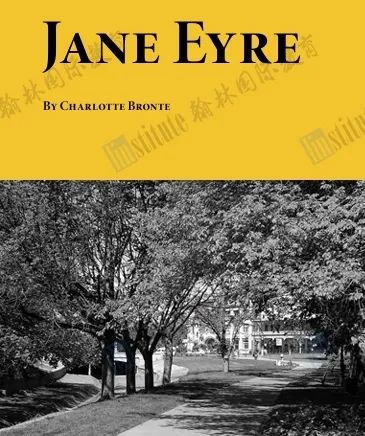
斯坦福大学推荐书单
扫码领取












